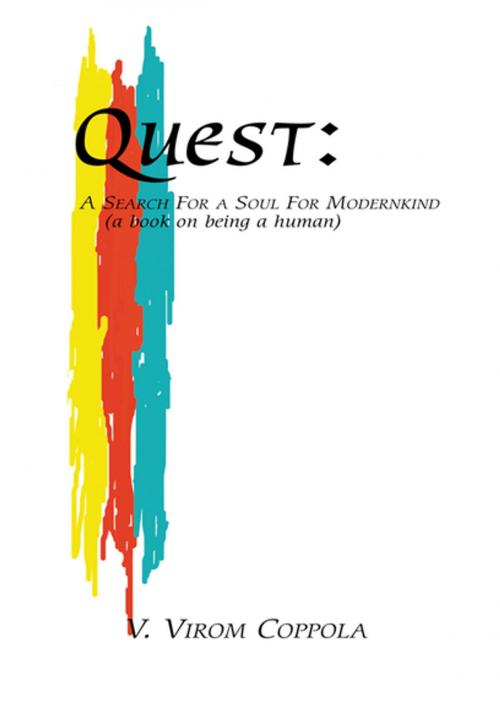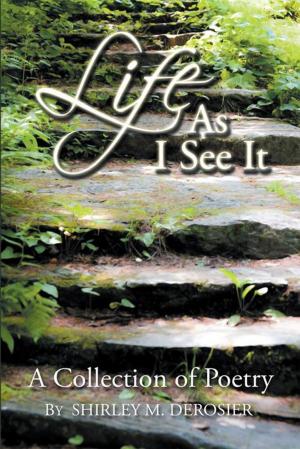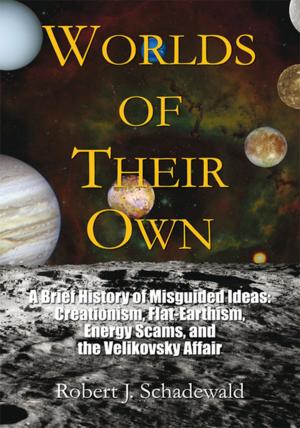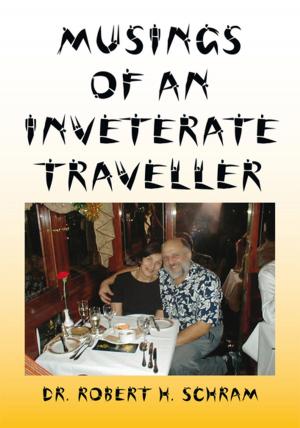Quest:
A Search for a Soul for Modernkind
Nonfiction, Religion & Spirituality, Philosophy, Modern, Religious, Mind & Body| Author: | V. Virom Coppola | ISBN: | 9781465322913 |
| Publisher: | Xlibris US | Publication: | March 16, 2004 |
| Imprint: | Xlibris US | Language: | English |
| Author: | V. Virom Coppola |
| ISBN: | 9781465322913 |
| Publisher: | Xlibris US |
| Publication: | March 16, 2004 |
| Imprint: | Xlibris US |
| Language: | English |
The task before us, in a nutshell, my fellow humans, is the clear and present danger of finding out, who we really are. That is the impossible feat I have given this poor creature, V. Virom, and each of us with him. The proof of the pasta is always in the tasting. So says the author at the beginning of his book as he invites the reader on a detective story, offering a beautifully written book with a rather remarkable synthesis of modern thinking, one that builds from the ground of existence alone, to a spirituality both secular and sacred. That single paragraph on the cover of the book says what needs to be said it seems to me. When I thought about this further and longer requested description of the book for the web site, T. S. Eliot came to mind. I am referring to the time when he was asked what his poem Prufrock was about and kindly replied, Read the poem. I do think he made a valid point, because asking for a description of a book is the same when you think about it. Shouldnt a person rather be reading the book itself? At the same time, I certainly can understand a person wanting to get a feel for the book before purchasing it, and since you dont have the book to handle and page through to do that (which I myself always do to see if there is going to be a love affair between the book and me), I will give the viewer some of the Overture at the beginning of my book as an overture here as well, hopefully to help accomplish the tangential absence. Call it virtual foreplay if you want.
First Review
From the Free Venice Beachhead News June 2004
Book Review
QUEST: A SEARCH FOR A SOUL MODERNKIND, by Vincent Coppola
Reviewed by Steve Goldman (a former editor for Encyclopedia Britannica)
With great passion, yet without a scintilla of mawkish sentimentality, Coppola here makes the strong compelling case for love as the direct and primary implication of human consciousness. That would be laudable by itself, but these are not merely the pleasant musings of a decent well-intentioned person. This is (and it is astounding) tightly reasoned philosophy, based on acute, astute observation and profound and powerful argument. Building on Descartes (whom he explicitly reverses on the fundamental matter of proof of personal experience) and Kant, who seems indispensable to all who came after, Coppola emerges with a distinctive and compassionate American existentialism that is unlike anything heretofore. With strongly grounded links to modern cosmology, evolutionary theory and sheer phenomenology of consciousness in space/time, Coppola delivers a ringing statement of free will, so sorely needed in this era of burgeoning biological reductionist determinism.
This in turn yields a ringing adduction of the ontological primacy of self, with commensurately devastating attacks on any variety of teeny-bopping reductionism, chemical, biological, physical or psychological: and as well on any religio-philosophical tradition (usually Asian), which explicitly denies or tries to eradicate the self. I myself exist, and I can love is the rigorously derived, powerfully demonstrated theorem, which is the first principal here. What is more, the revolutionary optional theology Quest proposes seems to at last settle that huge and perennial question for contemporary times. Additionally and astonishingly, and with philosophical deftness and gracious style, Coppolas secular Christology evinces sacred humanitarian values, again so needed in this era.
Coppola is a highly trained professional philosopher, a prodigiously well-read and deeply thoughtful theorist and analyst, whose similarity to the preponderant mentality in his field is only superficial. That is because Vincent (V. Virom) is a philosopher in the all but abandoned grand tr
The task before us, in a nutshell, my fellow humans, is the clear and present danger of finding out, who we really are. That is the impossible feat I have given this poor creature, V. Virom, and each of us with him. The proof of the pasta is always in the tasting. So says the author at the beginning of his book as he invites the reader on a detective story, offering a beautifully written book with a rather remarkable synthesis of modern thinking, one that builds from the ground of existence alone, to a spirituality both secular and sacred. That single paragraph on the cover of the book says what needs to be said it seems to me. When I thought about this further and longer requested description of the book for the web site, T. S. Eliot came to mind. I am referring to the time when he was asked what his poem Prufrock was about and kindly replied, Read the poem. I do think he made a valid point, because asking for a description of a book is the same when you think about it. Shouldnt a person rather be reading the book itself? At the same time, I certainly can understand a person wanting to get a feel for the book before purchasing it, and since you dont have the book to handle and page through to do that (which I myself always do to see if there is going to be a love affair between the book and me), I will give the viewer some of the Overture at the beginning of my book as an overture here as well, hopefully to help accomplish the tangential absence. Call it virtual foreplay if you want.
First Review
From the Free Venice Beachhead News June 2004
Book Review
QUEST: A SEARCH FOR A SOUL MODERNKIND, by Vincent Coppola
Reviewed by Steve Goldman (a former editor for Encyclopedia Britannica)
With great passion, yet without a scintilla of mawkish sentimentality, Coppola here makes the strong compelling case for love as the direct and primary implication of human consciousness. That would be laudable by itself, but these are not merely the pleasant musings of a decent well-intentioned person. This is (and it is astounding) tightly reasoned philosophy, based on acute, astute observation and profound and powerful argument. Building on Descartes (whom he explicitly reverses on the fundamental matter of proof of personal experience) and Kant, who seems indispensable to all who came after, Coppola emerges with a distinctive and compassionate American existentialism that is unlike anything heretofore. With strongly grounded links to modern cosmology, evolutionary theory and sheer phenomenology of consciousness in space/time, Coppola delivers a ringing statement of free will, so sorely needed in this era of burgeoning biological reductionist determinism.
This in turn yields a ringing adduction of the ontological primacy of self, with commensurately devastating attacks on any variety of teeny-bopping reductionism, chemical, biological, physical or psychological: and as well on any religio-philosophical tradition (usually Asian), which explicitly denies or tries to eradicate the self. I myself exist, and I can love is the rigorously derived, powerfully demonstrated theorem, which is the first principal here. What is more, the revolutionary optional theology Quest proposes seems to at last settle that huge and perennial question for contemporary times. Additionally and astonishingly, and with philosophical deftness and gracious style, Coppolas secular Christology evinces sacred humanitarian values, again so needed in this era.
Coppola is a highly trained professional philosopher, a prodigiously well-read and deeply thoughtful theorist and analyst, whose similarity to the preponderant mentality in his field is only superficial. That is because Vincent (V. Virom) is a philosopher in the all but abandoned grand tr















